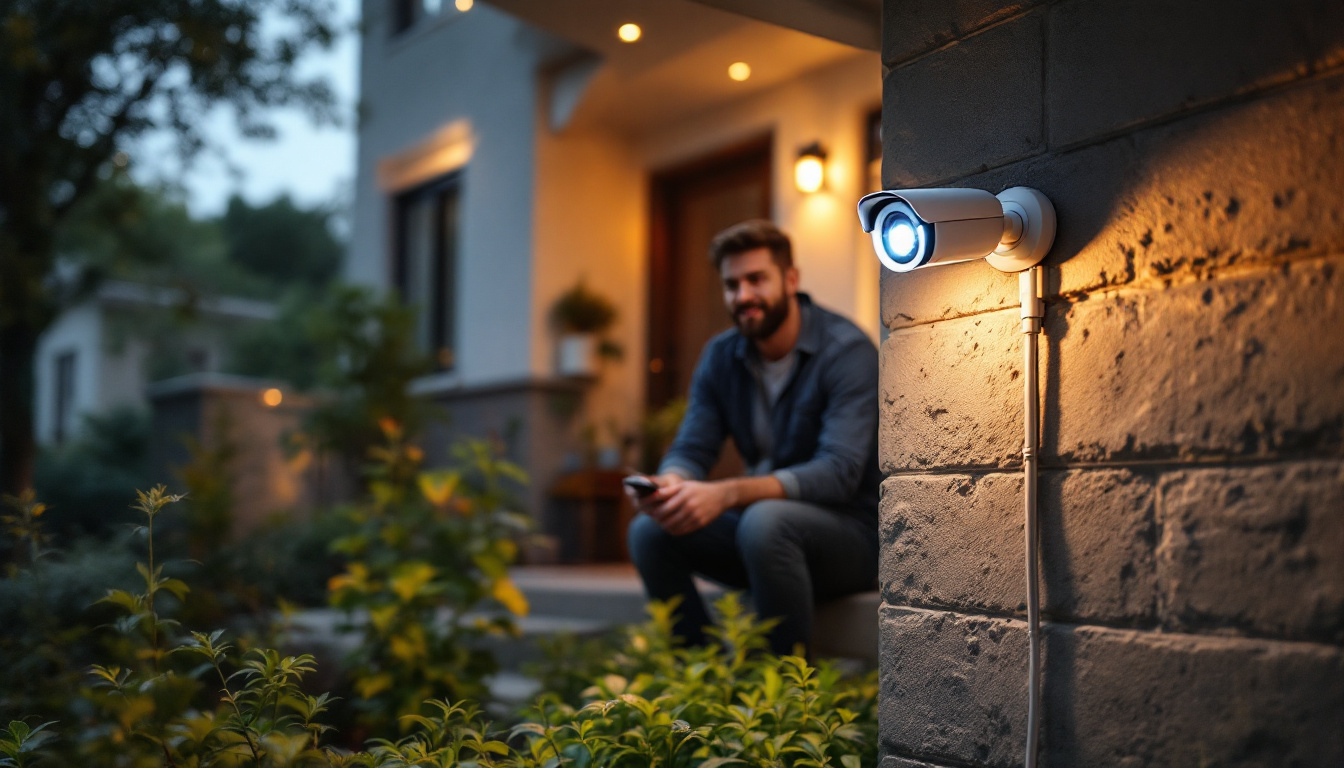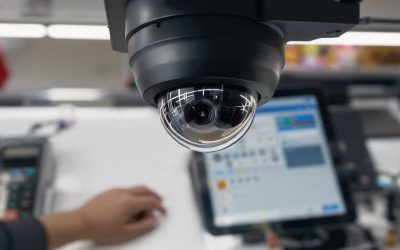Understanding the importance of home security cameras
In today’s world, the safety of our homes and loved ones is paramount. Home security cameras have become an essential component of residential security systems. They provide not only surveillance but also a tangible sense of security for homeowners. By understanding the importance of home security cameras, you can better appreciate their role in modern household safety.
Security cameras act as a deterrent to potential intruders. When a burglar sees a camera, they are far less likely to attempt to break in. In statistics-based reports, homes without security systems are significantly more likely to be targeted. This protective measure can also provide valuable evidence should an unfortunate incident occur, assisting law enforcement in the apprehension of criminals.
The role of security cameras in home safety
Security cameras play a vital role in enhancing home safety by continuously monitoring key areas around your property. They serve to discourage criminal behaviour and create a sense of vigilance in your neighbourhood. With the advent of smart technology, many homeowners can now access real-time footage via their smartphones, allowing for instant alerts and surveillance from anywhere in the world.
A robust security camera system can also monitor unexpected events, ensuring that your home is safe from fire hazards or other emergencies. Smart cameras with motion detection capabilities can send alerts directly to your mobile device, giving you peace of mind while you’re away.
The peace of mind provided by surveillance systems
One of the greatest benefits of having a home security camera system is the peace of mind it offers. Knowing that you have a watchful eye over your property allows you to feel more secure in your home. This tranquillity extends not only to yourself but to your family and guests as well.
With the combination of deterrents and real-time monitoring, surveillance systems put your mind at ease. Whether you’re on holiday, at work, or simply out for a few hours, you can check in on your home at any time with just a few taps on your phone.
Different types of home security cameras
As technology advances, the variety of home security cameras has grown significantly. Understanding the different types available can help you make the best choice for your needs. Choosing the right camera isn’t just about price; it’s about functionality and suitability for your individual situation.
Indoor versus outdoor cameras
Indoor cameras are typically designed to monitor the interior of your home. They tend to be smaller and less conspicuous than outdoor cameras, making them ideal for keeping an eye on children or pets. Many come equipped with features like facial recognition and two-way audio, allowing for interaction with those at home.
On the other hand, outdoor cameras are built tough to withstand weather conditions and deter vandalism. They usually offer features like night vision and motion-sensing technology, ensuring comprehensive coverage of your property’s exterior. By understanding these differences, you can choose a system that aligns perfectly with your objectives.
Wired versus wireless options
When selecting a security camera system, you will need to decide between wired and wireless options. Wired cameras offer a more stable and reliable connection, making them an excellent choice to cover larger properties or areas that require high-definition footage. However, they often require more installation work, including drilling holes and running cables.
Wireless cameras, while generally easier to install and reposition, may sometimes face issues with connectivity, particularly in areas with weak Wi-Fi signals. They offer flexibility and scalability, allowing you to expand your system as needed. Evaluating your home’s layout and technological capabilities will help you determine which option best fits your lifestyle.
The basics of home security camera installation
Installing a home security camera system does not need to feel daunting. With some research and planning, you can ensure that your setup is effective and suits your needs. An informed installation makes a world of difference in ensuring that your security cameras protect your home adequately.
Choosing the best locations for your cameras
When installing your cameras, location is key. You want your residential security system to monitor entry points, such as doors and windows, while also covering larger areas like driveways and gardens. Additionally, placing cameras at elevated heights can help prevent tampering and offer wider fields of view.
Don’t overlook the importance of lighting when selecting locations for your cameras. Areas that are too dark may lead to poor-quality footage, so consider positioning cameras in well-lit spots or investing in ones with night vision capabilities.
The installation process explained
The installation process varies depending on whether you’ve chosen wired or wireless cameras. For wired systems, it often includes running cables, mounting the cameras, and connecting everything to a central recording device. Wireless cameras typically require mounting and connecting them to your home Wi-Fi.
Always refer to the manufacturer’s guide for specific instructions tailored to your cameras. During installation, it’s advisable to conduct a test run to ensure everything functions as expected and covers the desired areas.
Maintaining your home security camera system
Once your security camera system is installed, ongoing maintenance is essential to ensure it continues to operate effectively. Regular checks can help you spot issues before they escalate and guarantee that your peace of mind remains intact.
Regular checks and updates
By taking a proactive approach, you can significantly extend the life of your equipment and ensure that your system remains effective and reliable.
Dealing with common technical issues
Even the best security systems can encounter issues. Common problems might include connectivity issues, camera malfunctions, or storage capacity concerns. Familiarising yourself with troubleshooting steps can save time and costly repairs. Ensure you read your manual easily to refer to the steps for resolving common technical glitches.
If problems persist, don’t hesitate to reach out to customer support for assistance. Most companies offer resources and support to help you maintain your system effectively.
Privacy considerations when installing home security cameras
As you secure your home, it’s essential to consider privacy implications associated with security cameras. Responsible installation can prevent potential disputes with neighbours and adhere to legal requirements.

Respecting neighbours’ privacy
An important aspect of using home security cameras is ensuring that they do not infringe on your neighbours’ privacy. Pointing cameras toward neighbouring properties can lead to discomfort and may attract legal attention. Always consider the field of view of your cameras and adjust as necessary to respect their privacy.
Open communication with neighbours about your security measures can help build trust and address any concerns they might have. This proactive approach fosters a positive community environment.
Legal aspects of home surveillance
Familiarise yourself with laws surrounding home surveillance and home security camera installation in your area. Most jurisdictions have regulations governing the use of security cameras, especially concerning audio recording and outdoor monitoring. Ensuring compliance with the law protects you and upholds ethical standards.
Educate yourself on the rules applicable to your situation. With proper planning, you can enjoy your enhanced security while being considerate of your neighbours and the law.










